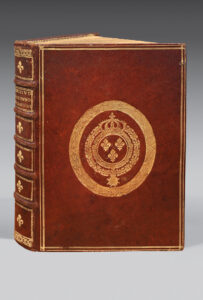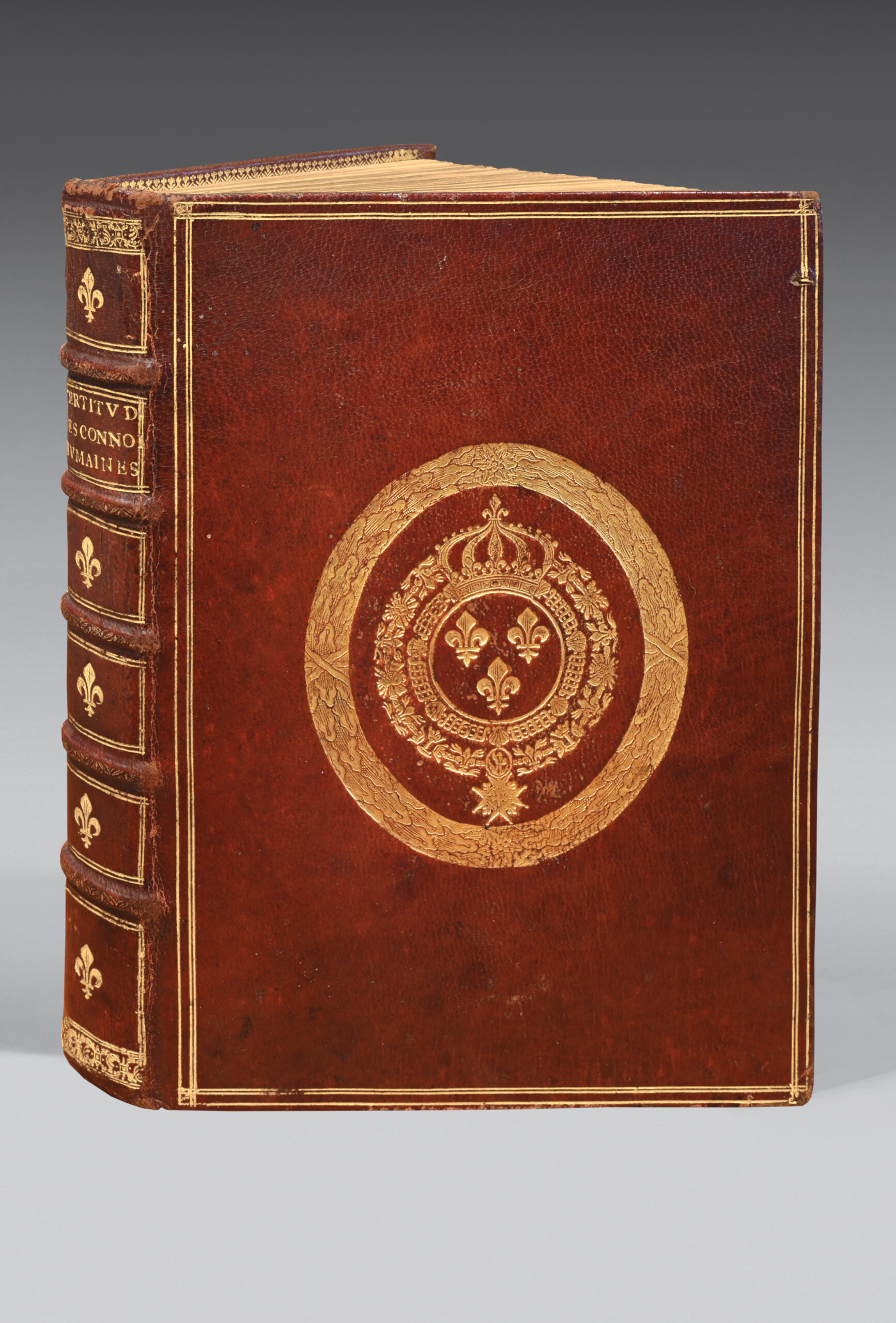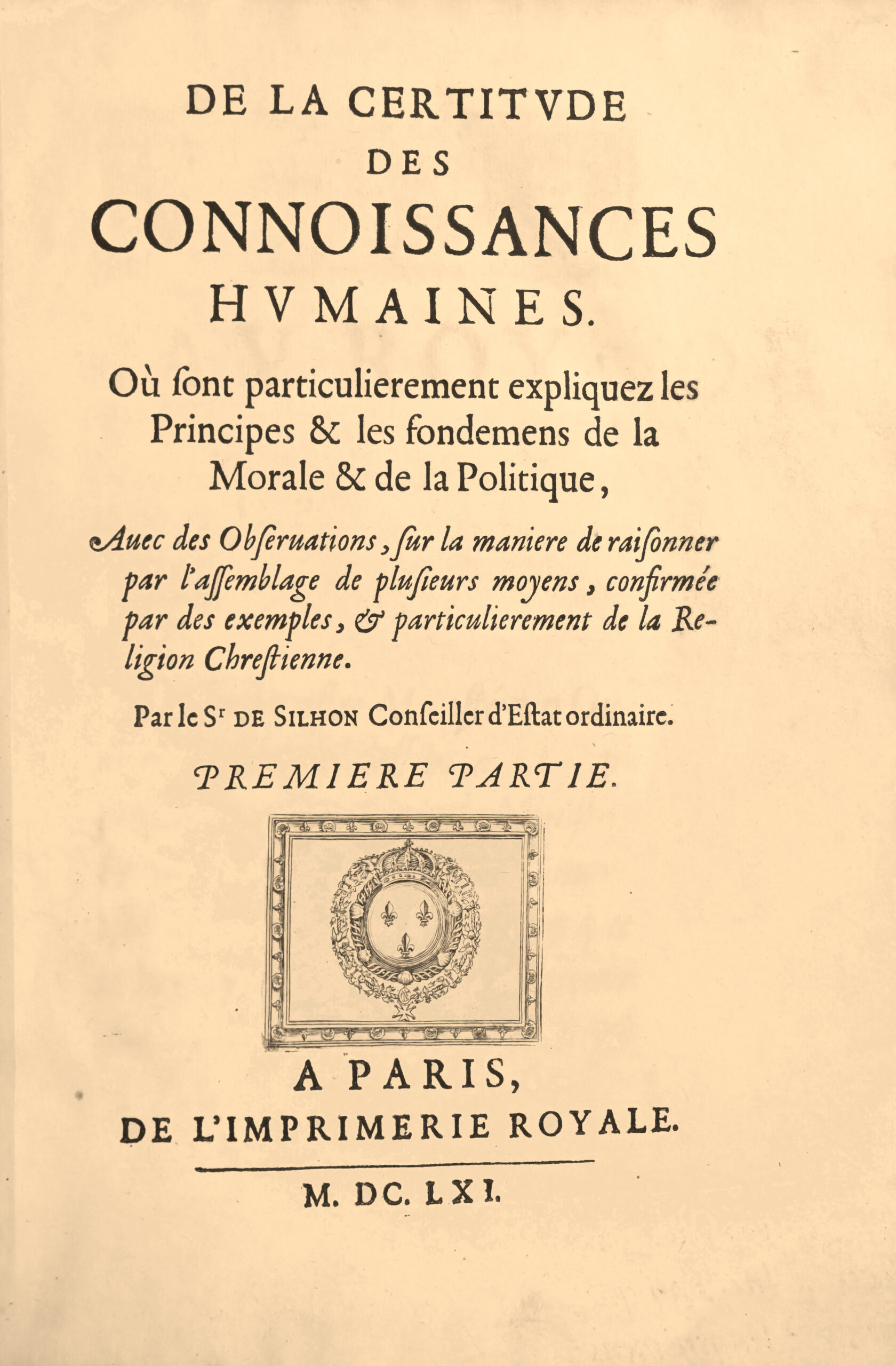Paris, de l’Imprimerie Royale, Sébastien Cramoisy, 1661.
4to of (22) ll., 637 pp., (1) p. Red morocco, triple gilt fillet around the covers, gilt coat of arms in the center, ribbed spine decorated with fleurs-de-lys, gilt inner border, gilt edges. Contemporary binding.
244 x 173 mm.
First edition of the last part of de Silhon’s ‘Ministre d’Etat’ printed by the Imprimerie royale.
“The first edition of de Silhon’s ‘Ministre d’Etat’ was printed in Paris, Touss. Du Bray, in 1631, 1643 and 1661, in 3 volumes 4to. The 3rd, which is rarely found, is entitled: ‘De la Certitude des connaissances humaines…’. Paris, impr. royale, 1661”. (Brunet, V, 381).
“However, the duties of the Cardinal’s secretary were not always so absorbing that they didn’t lêve Silhon a few moments of leisure. He was busy composing the third volume of his ‘Ministre d’Etat’.
This volume, entitled ‘De la certitude des connaissances humaines, où sont particulièrement expliquez les principes et les fondemens de la morale et de la politique’, was the third part of the ‘Ministre d’Etat’; it appêred, in fact, with this subtitle, in Amsterdam, in the Elsevier collection, in 1662, after having been printed in Paris, by Toussaint du Bray, and even at the Imprimerie Royale.
It is divided into five books. In the first two, the author, after combating the feeling of the Pyrrhonians and in particular that of Montaigne, establishes the certainty of our knowledge. In the next two, he dêls with the obedience that subjects owe to their sovereigns, and in the fifth, returning to his goal, from which he had strayed too long, he explains what a moral demonstration is. We can see from this presentation, remarks M. Ch. Weiss, that Chapelain was right to criticize him for his lack of order and method. But the systematic arrangement of rêsoning was of little importance to the good Silhon: his aim was to fight skepticism; he piled up every argument against his enemy; and provided he hit as hard as he could, he was proud of his work, without looking to see if the blows were delivered according to the rules…
Lenglet du Fresnoy writes in his ‘Méthode pour étudier l’histoire’: ‘This work is neglected by rêders, because the first two books only dêl with the maxims of morality, and it has been thought, without paying attention to it, that all the rest is purely philosophical: it does, however, contain ‘the grêtest and most bêutiful principles of politics’, but one should only begin rêding it at Book III; the rest, whose title does not warn, is nourished by the most certain principles of government’.
The trêtise on ‘Certitude des connaissances humaines’ was Silhon’s last work, and marked the end of his prosperity. Cardinal Mazarin died in March 1661, and his faithful secretary found himself without support; for Silhon had not taken advantage of his eighteen yêrs of favor to solicit the liberties of the other powerful men of the period…
Twenty yêrs later, Bayle, in his ‘Questions d’un Provincial’, said that Silhon had been ‘without question one of the most solid and judicious authors of his century’ (Jên de Silhon, l’un des quarante fondateurs de l’Académie, René Kerviler).
Precious copy preserved in its contemporary red morocco binding with the arms of Louis XIV (Olivier, 2494, tool n°7).



